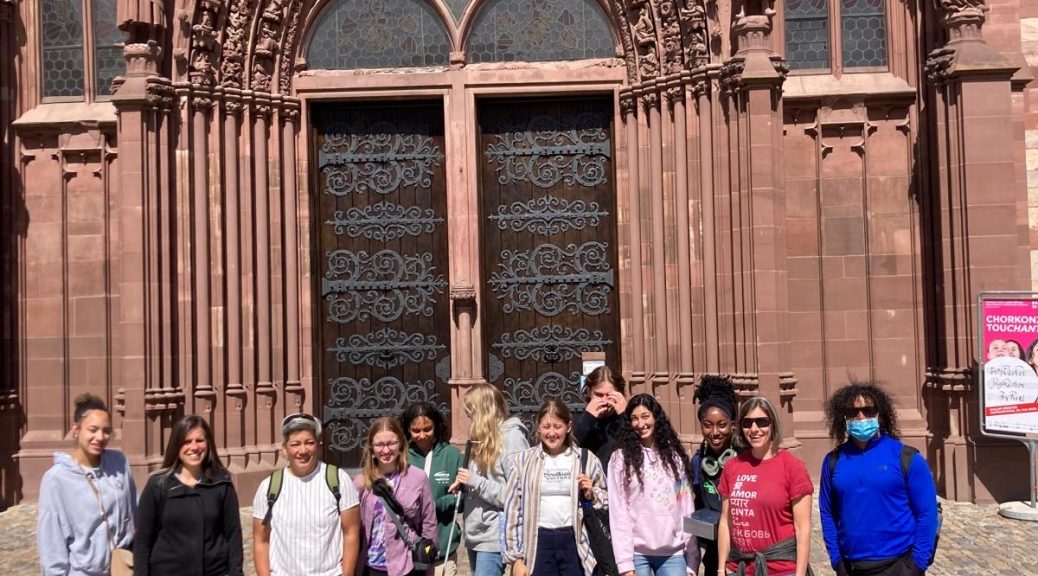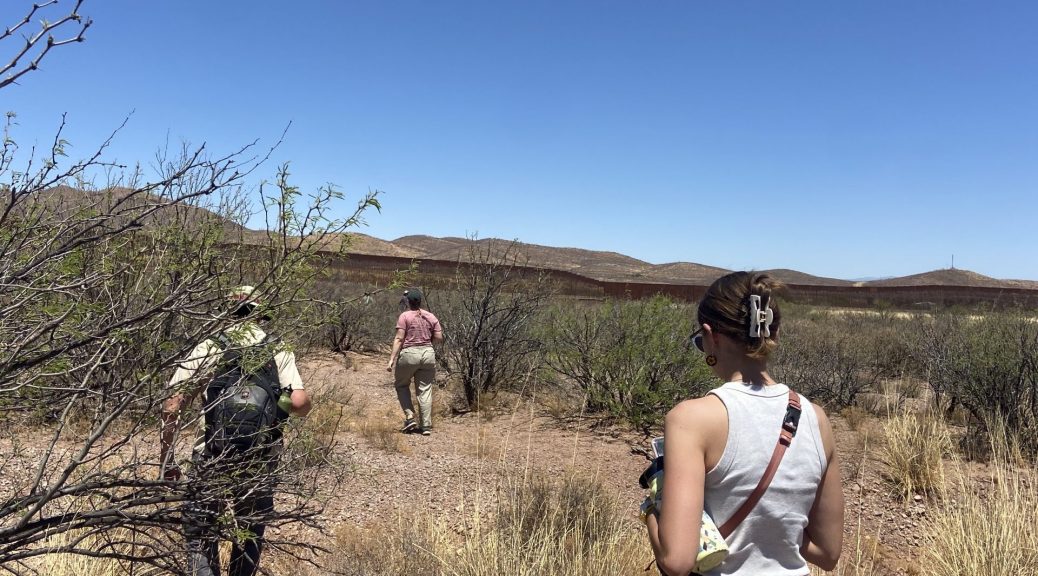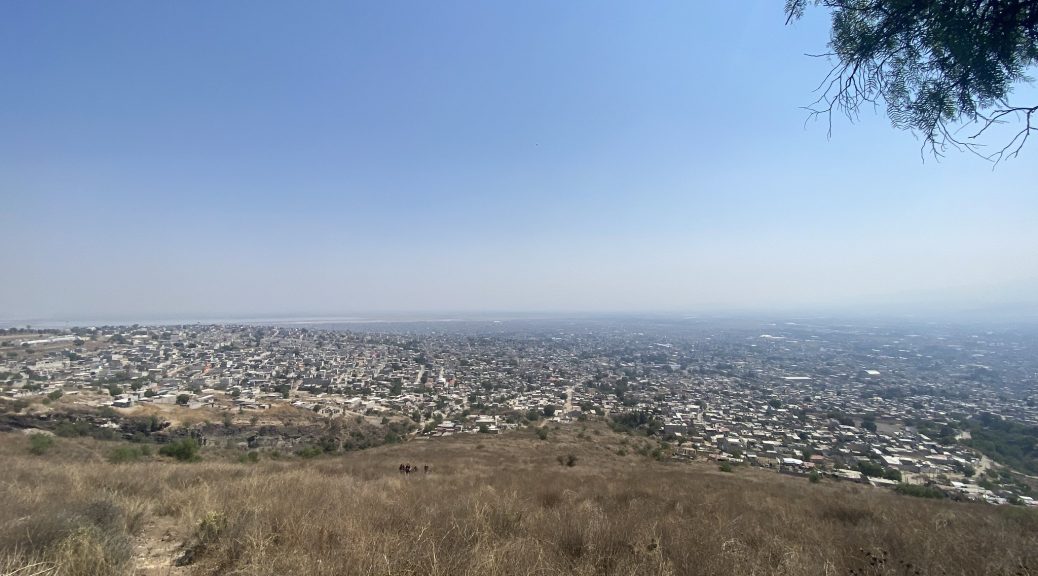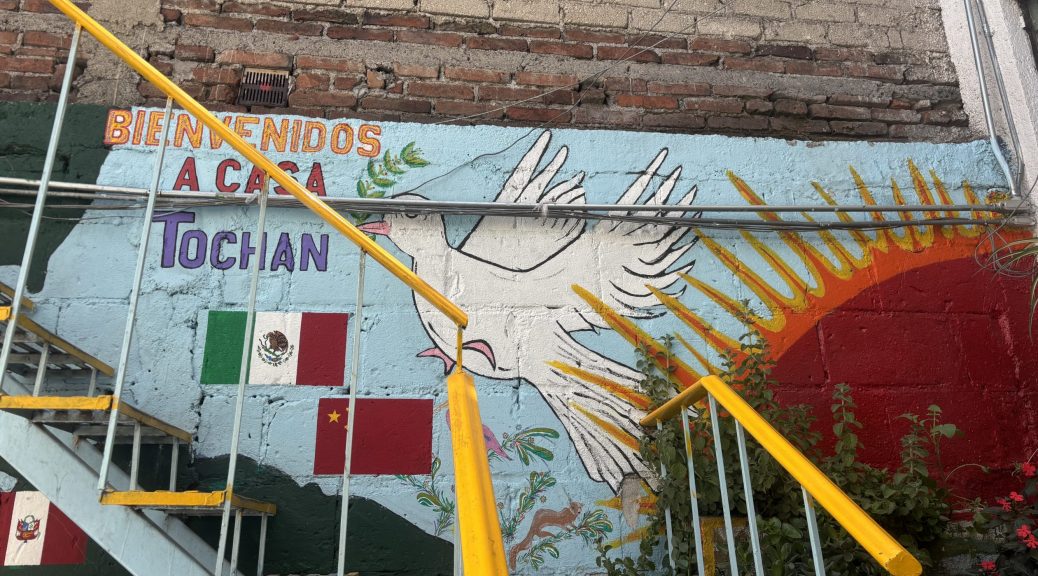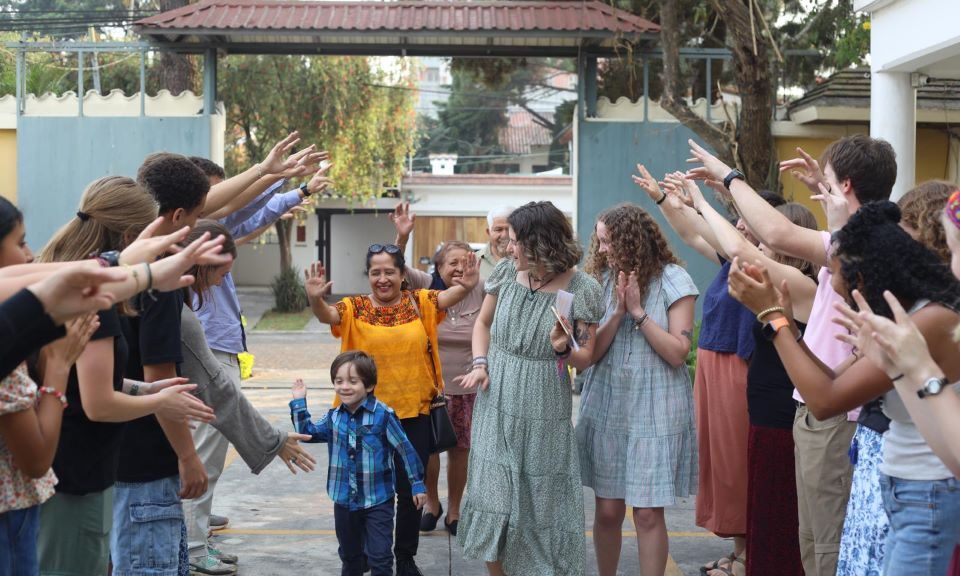26 May 2025
The last several days we explored anabaptist history with pastor Emanuel Neufeld in Basel. The banner photo is our group at the Münster.
Then we were off to the Swiss countryside, exploring remote farms where anabaptists sought precarious refuge after persecution drove 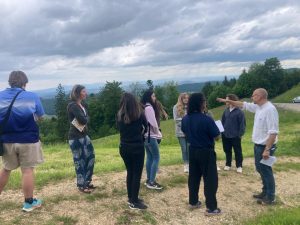 them away from … Continue Reading ››
them away from … Continue Reading ››
 them away from … Continue Reading ››
them away from … Continue Reading ››
On the border
April 20-27
This week our group arrived in Tucson by plane on Monday and drove to the border towns of Douglas and Agua Prieta. We spent the week doing activities planned by the organization Frontera de Cristo. We started by visiting the border fence and learning the history that led to the … Continue Reading ››
Mexico City
21 April - Mexico City:
This past week, we wrapped up our time in Mexico City. We spent 2 more days volunteering at Casa Tochan, where we hung out with and played many fun games with the migrants, as well as hearing many stories from the migrants about their immigration journey and gaining insight on … Continue Reading ››
Guatemala to Mexico
13 April
This week we wrapped up our time in Guatemala and traveled to Mexico City. On Monday, we had an EMU class as an orientation for our time in Mexico. We left early Tuesday morning for the airport and arrived in Mexico City in the afternoon. On Wednesday, we divided into small groups and visited … Continue Reading ››
Guatemala – Community Learning II
5 April, 2025
Over the past two weeks, our group has been split up in different Guatemalan Departments. Our community learning experiences were connected to our majors, and included countless experiences and journeys. I had the pleasure of staying in San Juan for these weeks.
I spent my days working in a clinic, AMI, along … Continue Reading ››
Guatemala: Community Learning
March 23-30
Our group gathered for a day at Semilla after free travel then Sunday morning we left for our service learning assignments. Zoe and Amanda stayed in the city at Clínica Jac de Wit. Caleb, Sam and Malachi went to Comalapa to work with Rujotay. Malia, Emae and Payton went to … Continue Reading ››
Guatemala: gradually, then suddenly
16 March, 2025
This week we heard from a few speakers, one speaking about Mennonites in Central America, another about Catholicism and Liberation Theology, and we heard from a group from Mennonite Central Committee (MCC) about their work and opportunities.
It was our last week of Spanish classes and our last week with our host families. Thursday … Continue Reading ››
Guatemala: Eternal Spring
The week started with our group on the Pacific black sand beach of Monterrico, where we had 2 nights to enjoy the ocean. We also visited an organization that protects sea turtles. We traveled back to the city on Tuesday and our afternoon visits were focused on migration. We visited Casa del Migrante … Continue Reading ››
Guatemala: faith connections / the volcano
23 February 2025
This week was centered around economics in Guatemala. On Monday and Tuesday we had guest speakers that talked about the economy in Guatemala and how it differs from other economies in the world. Wednesday, we visited the brewery Zapote of the Guatemalan brand of beer, Gallo. On Thursday we had our weekly EMU … Continue Reading ››
Guatemala: Opportunities
23. February
After a full week away from the city it was time to settle back into Spanish class and host family stays. This week was focused on the Health and Education systems in Guatemala. First, we compared private to public health care. Then we went  to … Continue Reading ››
to … Continue Reading ››
 to … Continue Reading ››
to … Continue Reading ››
